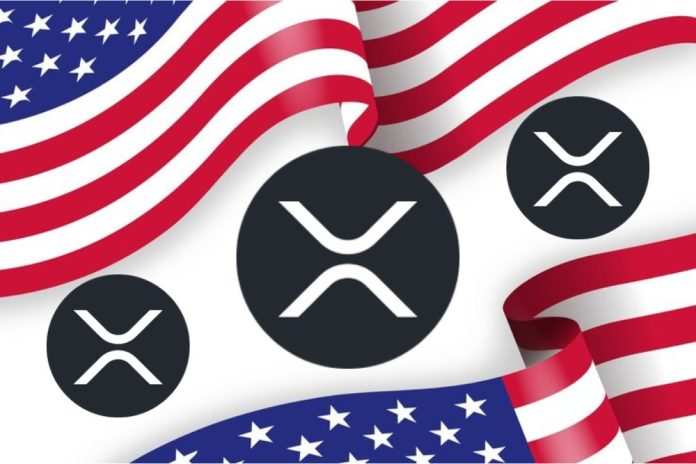On February 16, 2025, the U.S. Department of Justice (DOJ) Civil Division and the Financial Crimes Enforcement Network (FinCEN) officially recognized XRP as a “convertible virtual currency.”
This designation requires XRP to comply with U.S. banking laws, marking a significant regulatory milestone as it becomes the first cryptocurrency in the United States to achieve such status.
Amelie’s Tweet Sparks Widespread Discussion
The news was widely circulated on social media, with crypto influencer Amelie bringing attention to it in a tweet that quickly gained traction. She wrote: “BREAKING: #XRP HAS BEEN OFFICIALLY RECOGNIZED AS A ‘CONVERTIBLE VIRTUAL CURRENCY’ BY THE U.S. DEPARTMENT OF JUSTICE CIVIL DIVISION & FINCEN!”
The announcement prompted strong reactions from the cryptocurrency community. One X user, Best Invest, commented, “This is big news This classification subjects XRP to U.S. banking laws, making it the FIRST regulated cryptocurrency in the country!”
Amelie’s tweet contributed to the rapid spread of the information, highlighting the growing importance of social media in shaping discussions about cryptocurrency regulations.
Regulatory Clarity and Its Implications for XRP
The term “convertible virtual currency” is a digital currency with an equivalent value in real currency or acts as a substitute for real currency. This classification subjects XRP to the same regulatory frameworks that govern traditional financial institutions, including adherence to anti-money laundering (AML) and know-your-customer (KYC) regulations.
This development is particularly noteworthy given XRP’s history with U.S. regulatory bodies. In December 2020, the Securities and Exchange Commission (SEC) filed a lawsuit against Ripple Labs Inc., the company behind XRP, alleging that the sale of XRP constituted an unregistered securities offering. This legal battle has been a focal point in the cryptocurrency industry, raising questions about the regulatory status of various digital assets.
The recent recognition by the DOJ and FinCEN provides much-needed clarity for XRP and its stakeholders. By classifying XRP as a convertible virtual currency, these agencies have effectively distinguished it from securities, placing it under the purview of financial crimes enforcement rather than securities regulation. This move aligns with FinCEN’s ongoing efforts to regulate virtual currencies and ensure they are not used for illicit activities.
We are on twitter, follow us to connect with us :- @TimesTabloid1
— TimesTabloid (@TimesTabloid1) July 15, 2023
Market and Industry Reactions
The immediate market response to this announcement was significant. On the announcement, XRP’s price experienced a notable increase, reflecting renewed investor confidence and optimism about its prospects. This surge underscores the importance of regulatory clarity in the volatile cryptocurrency market.
Industry experts have weighed in on the implications of this development. Many believe this recognition could pave the way for broader institutional adoption of XRP, as regulatory uncertainty has been a major barrier for traditional financial institutions considering involvement in the cryptocurrency space.
With this new designation, XRP is now subject to established regulatory frameworks, potentially making it more attractive to banks, payment processors, and other financial entities.
However, this new status also brings increased regulatory responsibilities for Ripple Labs Inc. The company must fully comply with U.S. banking laws, including implementing robust AML and KYC procedures. Failure to adhere to these regulations could result in significant penalties and legal repercussions.
This development also sets a precedent for other cryptocurrencies operating in the U.S. market. The recognition of XRP as a convertible virtual currency may prompt other digital asset issuers to seek similar classifications to gain regulatory clarity and legitimacy. It may also influence how other regulatory bodies, both within the U.S. and internationally, approach the regulation of digital assets.
Disclaimer: This content is meant to inform and should not be considered financial advice. The views expressed in this article may include the author’s personal opinions and do not represent Times Tabloid’s opinion. Readers are urged to do in-depth research before making any investment decisions. Any action taken by the reader is strictly at their own risk. Times Tabloid is not responsible for any financial losses.
Follow us on Twitter, Facebook, Telegram, and Google News



